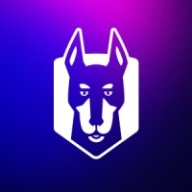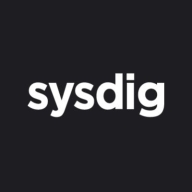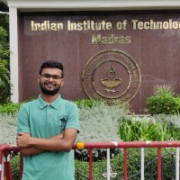

Sysdig Secure and Snyk both operate in the security realm, targeting different aspects. Sysdig focuses on cloud and container security, while Snyk specializes in open-source code vulnerability scanning and management. In terms of features, Sysdig holds the advantage in cloud-native environments with robust support, while Snyk is more suited for DevSecOps.
Features: Sysdig Secure provides deep visibility into container and Kubernetes environments, enabling real-time threat detection and compliance checks, and integrates with CI/CD pipelines. Snyk integrates seamlessly into developer workflows, offering broad coverage of open-source vulnerabilities and comprehensive automation.
Room for Improvement: Sysdig could enhance user interface simplicity and streamline initial setup for complex environments. It might also improve documentation for better onboarding. Snyk might enhance its vulnerability database breadth, focus on reducing false positives, and improve its response to emerging threats.
Ease of Deployment and Customer Service: Sysdig Secure is recognized for streamlined deployment in containerized environments and offers extensive documentation. Snyk provides a quick setup, focusing on integration with developer tools, and is highly rated for its comprehensive onboarding resources.
Pricing and ROI: Sysdig Secure generally requires higher upfront investment but offers substantial ROI for cloud-native technology reliance. Snyk's accessible pricing, especially appealing to smaller teams, offers good ROI by speeding up vulnerability detection. Despite higher costs, Sysdig provides significant value in complex ecosystems, while Snyk excels in cost-effectiveness for code security management.
| Product | Market Share (%) |
|---|---|
| Snyk | 4.4% |
| Sysdig Secure | 2.9% |
| Other | 92.7% |

| Company Size | Count |
|---|---|
| Small Business | 21 |
| Midsize Enterprise | 9 |
| Large Enterprise | 22 |
| Company Size | Count |
|---|---|
| Small Business | 6 |
| Midsize Enterprise | 2 |
| Large Enterprise | 5 |
Snyk excels in integrating security within the development lifecycle, providing teams with an AI Trust Platform that combines speed with security efficiency, ensuring robust AI application development.
Snyk empowers developers with AI-ready engines offering broad coverage, accuracy, and speed essential for modern development. With AI-powered visibility and security, Snyk allows proactive threat prevention and swift threat remediation. The platform supports shifts toward LLM engineering and AI code analysis, enhancing security and development productivity. Snyk collaborates with GenAI coding assistants for improved productivity and AI application threat management. Platform extensibility supports evolving standards with API access and native integrations, ensuring comprehensive and seamless security embedding in development tools.
What are Snyk's standout features?Industries leverage Snyk for security in CI/CD pipelines by automating checks for dependency vulnerabilities and managing open-source licenses. Its Docker and Kubernetes scanning capabilities enhance container security, supporting a proactive security approach. Integrations with platforms like GitHub and Azure DevOps optimize implementation across diverse software environments.
In the cloud, every second counts. Attacks move at warp speed, and security teams must protect the business without slowing it down. Sysdig stops cloud attacks in real time, instantly detecting changes in risk with runtime insights, a unique AI architecture, and open source Falco. Sysdig delivers live visibility by correlating signals across cloud workloads, identities, and services to uncover hidden attack paths. By knowing what is running, teams can prioritize the vulnerabilities, misconfigurations, permissions, and threats that matter most. From prevention to defense, Sysdig helps enterprises move faster and focus on what matters: innovation.
Sysdig. Secure Every Second.
We monitor all Container Security reviews to prevent fraudulent reviews and keep review quality high. We do not post reviews by company employees or direct competitors. We validate each review for authenticity via cross-reference with LinkedIn, and personal follow-up with the reviewer when necessary.